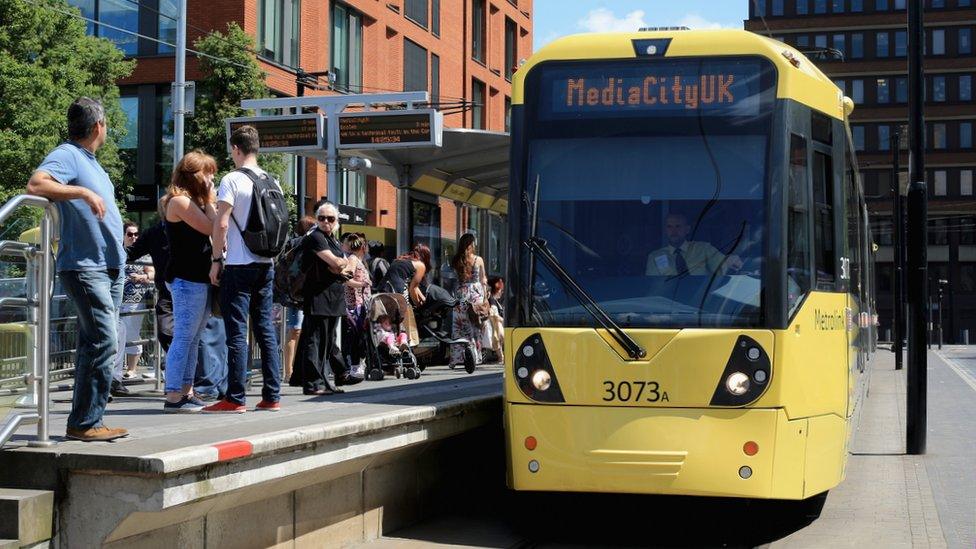Greater Manchester's road pollution worse than feared
- Published
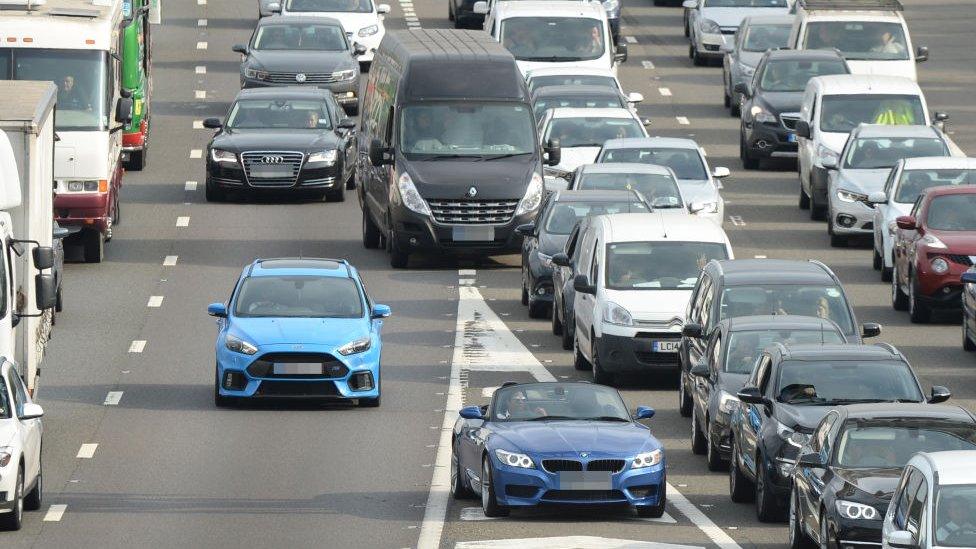
Levels of harmful nitrogen dioxide on the regions roads are a "public heath crisis", Greater Manchester Combined Authority said.
Air quality around Greater Manchester's busiest roads is worse than feared, transport bosses have said.
The region's combined authority said the number of roads failing to hit government pollution targets by 2020 will be 14 times higher than feared.
It called for the government to fund car scrappage schemes and low emission vehicles to tackle dirty roadside air
Greater Manchester Combined Authority (GMCA) said roadside nitrogen dioxide levels were a "public health crisis".
It will meet on Friday to discuss progress on the Greater Manchester Clean Air Plan, external, which aims to find ways to reduce air pollution caused by traffic.
No congestion charge
The government ordered councils in Bury, Bolton, Manchester, Salford, Stockport, Tameside and Trafford to implement a clean air plan no later than the end of 2020 after a July 2017 study, external by the Department for Environment, Food and Rural Affairs (Defra) found excessive nitrogen dioxide levels.
It added Oldham to the list in a May 2018 report, external.
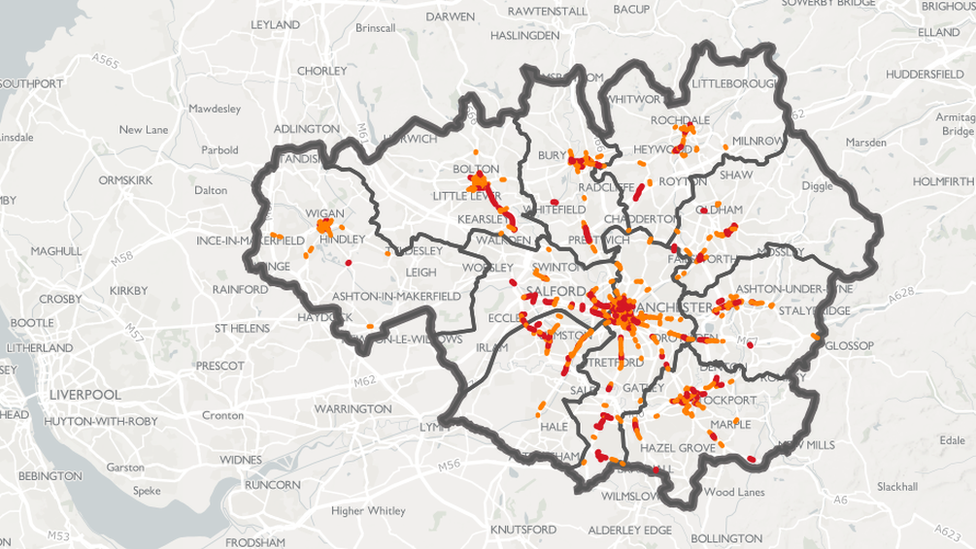
Greater Manchester Combined Authority published an interactive map showing the roads with the worst pollution
The study predicted 11 stretches of road would be over the legal limit of 40 micrograms of nitrogen dioxide per cubic metre of air after the deadline.
GMCA's own study has revealed 152 roads are likely to be in breach of the threshold by the end of 2020 and has shown each location on a map, external.
They include main arteries in Manchester - which was revealed in September to have the country's worst congestion outside of London - and Salford.
Councillor Alex Ganotis of GMCA said: "We're calling on the government to give Greater Manchester the tools we need to tackle the problem together - this means a local vehicle scrappage scheme and funding for cleaner engines for buses and taxis".
GMCA said it would not introduce a congestion charge but was considering clean air zones which would charge drivers of vehicles which caused the most pollution.
A Defra spokesman said it was working with GMCA to improve local air quality and Greater Manchester had received £250m from the government in the last two years to reduce emissions.
- Published8 September 2018

- Published6 February 2018
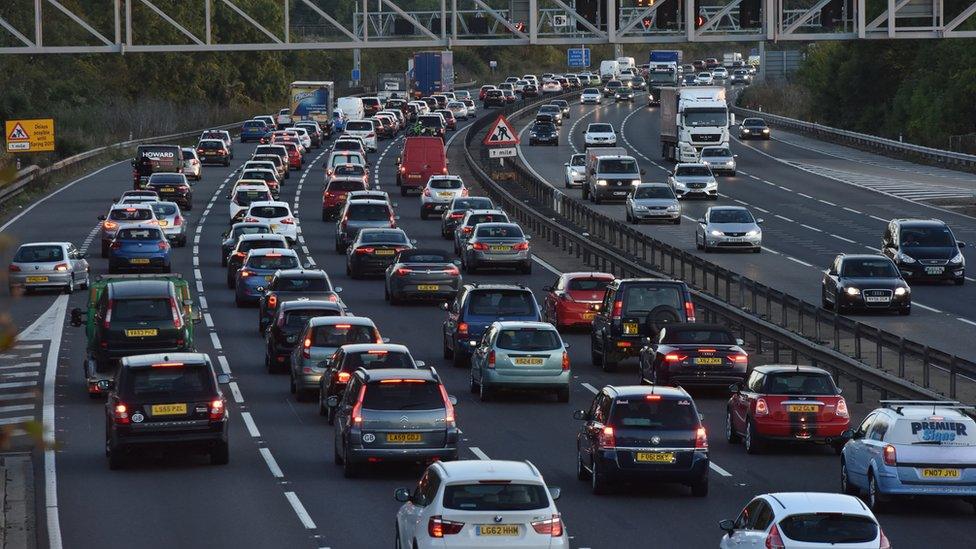
- Published18 October 2017
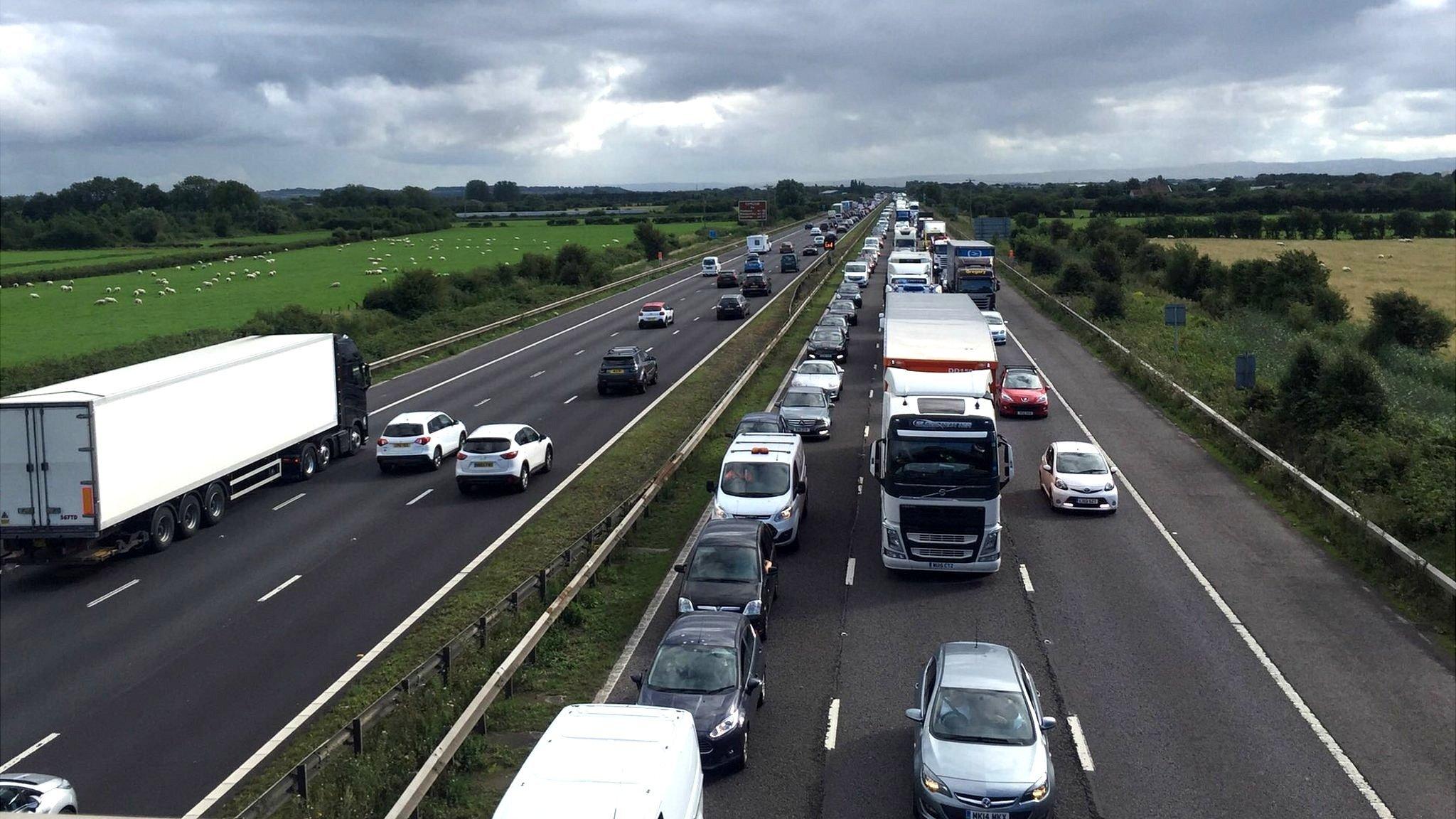
- Published23 March 2018
